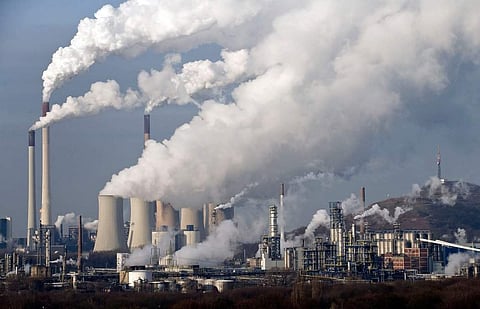

The world has experienced the first full year in which global temperatures have exceeded the key target of 1.5C above pre-industrial times, according to the European Union's Copernicus Climate Change Service (C3S), which said the climate crisis is pushing the planet's temperature to levels never before experienced by modern humans.
The 1.5C figure has become a powerful symbol in international climate negotiations ever since it was agreed in Paris in 2015, with many of the most vulnerable countries considering it a matter of survival, according to the BBC.
The C3S report said that 2024 saw unprecedented global temperatures, following on from the remarkable warmth of 2023. It also became the first year with an average temperature clearly exceeding 1.5°C above the pre-industrial level – a threshold set by the Paris Agreement to significantly reduce the risks and impacts of climate change.
Multiple global records were broken, for greenhouse gas levels, and for both air temperature and sea surface temperature, contributing to extreme events, including floods, heatwaves and wildfires. These data highlight the accelerating impacts of human-caused climate change, said C3S.
The report said that in 2024, annual surface air temperatures were above the 1991–2020 average across most of globe (91%). Temperatures exceeded the average by more than 1°C over more than half (52%) of land areas. Surface air temperature anomalies over the ocean largely reflected the anomalies in sea surface temperatures, which are discussed below. As in 2023, northern Canada experienced some of the largest anomalies, with values around 3°C above average.
The C3S data also shows that a record 44% of the planet was affected by strong to extreme heat stress on 10 July 2024, and that the hottest day in recorded history struck on 22 July, The Guardian reported.
Wildfires raging in California this week have killed at least 10 people and destroyed hundreds of homes. In 2024, Bolivia and Venezuela also suffered disastrous fires, while torrential floods hit Nepal, Sudan and Spain, and heatwaves in Mexico and Saudi Arabia killed thousands, the Independent noted.
The climate crisis is worsening storms and torrential rainfall, because a hotter atmosphere can hold more water, leading to intense downpours. The amount of water vapour in the planet's atmosphere reached a record high in 2024, the report added.